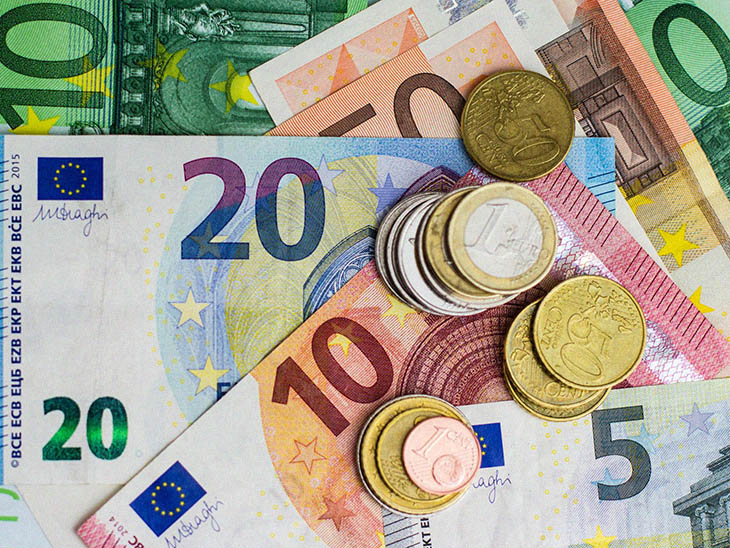
As the worldwide economies continue on with the struggle of an unforeseen recession due to the coronavirus pandemic, governments of every country are scrambling to find solutions to minimizing all the social and financial damage Covid-19 has affected such as unemployment, hunger, emotional distress and other traumatizing events.
With the worsening crisis on everyday lives, Germany will begin a trial for universal basic income (UBI), which will provide 120 citizens a monthly stipend of €1,200, or about $1,430 for the next three years. This amount is just a little over the poverty line in the country.
The experience of these 120 volunteers living on an almost minimum wage will be a comparison to the lives of 1,380 other citizens that will not be receiving these stipends. According the Business Insider, The German Institute for Economic Research is conducting the experiment that is being funded through private donations of around 140,000 individuals.
Both the left and right political parties have raised their concerns on basic income. Notable names that have also demanded for this include venture capitalists and tech oligarchs like Marc Andreesen, Peter Thiel and Jack Dorsey.
Supporters backing up this plan have stated that if basic income exists, inequality amongst citizens would be reduced and financial security will be gained by the marginally poor. Andrew Yang, the former Democratic presidential candidate also suggested that a universal basic income is needed in order to prevent a worsening of the humanitarian and financial crisis the country is facing right now.

On the other hand, critics on the left have claimed that having basic income is a ‘neoliberal trojan horse’ that would eventually dismantle the remains of their welfare state by offering the “paying people for being alive” stipend which will in turn, destruct the social safety nets that protect that most vulnerable members of society and led to an even more extreme inequality.
Supporters on the right, however, say that this idea is too expensive and would disincentivize others that are seeking for better jobs and opportunities, knowing they can rely on a basic income stipend. It would end up subsidizing “junkies, alcoholics, and scam artists.”
With the present reality of thousands of citizens losing their jobs, as well as the worldwide decline in consumer demand and household spending, the idea of a universal basic income has been an idea that is growing more popular since the 2008 European financial crash.
In Spain, almost a million citizens have lost their jobs during the Covid-19 pandemic, leading public officials to think twice about offering UBI of between €462 – €1,105 depending on the size of family to the country’s extreme poor. Although, a problem they are encountering is the wide gap that have left out at-risk members of the society like the undocumented migrant workers, whom will not be applicable to receive the UBI.
Italy has also experimented with basic income plans through the form of unemployment insurance, but with many people being left out of these advantages, it did not prove to be a ‘universal benefit.’

With all these failed attempts, there have also been some successes to the UBI on a more micro scale. A Silicon Valley-funded nonprofit called GiveDirectly had great success in giving residents of a small Kenyan village an equivalent of USD $22. Economic journalist Annie Lowrey shared with the New Yorker that the village which once lacked even paved roads, electricity and decent plumbing, has now flourished to “a bubbling pot of enterprise, as residents whose days used to be about survival save, budget and plan.”
Other politicians belonging to different spectrums in Columbia are also pushing for the government to being an Emergency Basic Income in order to lessen the Covid-19 damage that the citizens are suffering. The first city in South America to offer basic income was Bogota, under Green Party Mayor Claudia Lopez. This was offered to the most vulnerable households that could not even feed themselves amidst the lockdown. According to a press release delivered by the city of Bogota, their plan also included an integration of 581,000 households into the banking system.
The researchers behind the German UBI hope that the conclusions taken from their experiment will help improve the debate about basic income through backed up scientific evidence.
“The debate about the basic income has so far been like a philosophical salon in good moments and a war of faith in bad times,” said Jürgen Schupp, who is leading the study.
“It is — on both sides — shaped by clichés: Opponents claim that with a basic income people would stop working in order to dull on the couch with fast food and streaming services,” he continued. “Proponents argue that people will continue to do fulfilling work, become more creative and charitable, and save democracy.”
“Incidentally, these stereotypes also flow into economic simulations as assumptions about the supposed costs and benefits of a basic income,” he added.
“We can improve this if we replace these stereotypes with empirically proven knowledge and can therefore lead a more appropriate debate.”
What are your thoughts? Please comment below and share this news!
True Activist / Report a typo


